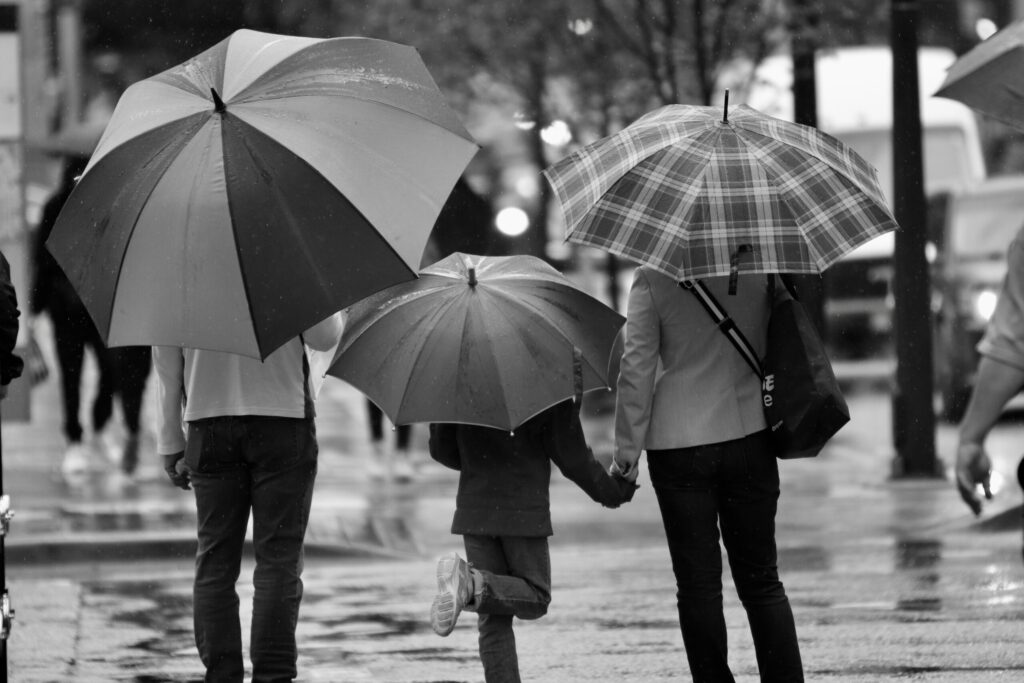Dear Sophia:
Help! I want my children to have a good life, just like everyone else. How do I strike a balance between protecting them and shaping them into being compassionate, contributing citizens in the world? What are your best parenting tips to settle my anxiety?
Sincerely,
An Anxious Parent
Dear Anxious Parent:
Your question could spark a lifetime of correspondence and is something that every parent hopes for their child: that they are safe, happy, and making a positive difference in the world.
Let’s begin with the premise of belief that we each are wonderfully created by God and are beloved by God. This includes you, too, dear Anxious Parent. So, by nature, each person is unique coming into the world. This is as beautiful as it is challenging. Your children are not just like you, so part of your job is to get to know who they are—not as a friend or extended family member, but as their parent—guiding them in how to be a functional and contributing human while encouraging their own bright spirit.
Rudolf Dreikurs, an Austrian psychiatrist and adherent of Alfred Adler’s Individual Psychology, and Vicki Stolz wrote a book descriptively and accurately called Children: The Challenge. Originally written in 1964, it has been updated over the course of the years, but its basis has remained the same: to teach parents how to guide their children with encouragement and cooperation. Just as scripture shows that human nature has not changed much over the course of the centuries, a child’s development has not changed much either. Children and parents continue to have the same problems that they have had throughout time, with different external pressures and mediums shaping the experience.
Common language
Parenting is hard and all-consuming, which I am sure you know, Anxious Parent. One of the most helpful things you can do is to get your village—partner, extended family, babysitters, and/or friends—to speak the same language when encouraging and disciplining your child. I know sometimes this is not possible, such as in estranged, strained, or violent relationships, but where you can, do it. The fact is that each of us come from different families of origin, with different life wounds, and we bring these experiences—healthy and unhealthy—into our parenting. There are a number of resources out there that can assist you, so here are a few examples:
- Taking a parenting class together, such as Positive Discipline, Bringing Home Baby, or Love and Logic.
- Reading parenting books together. Positive Discipline has a whole range of books for each stage of a child’s life. There is also a great list for 2023 from Positive Parenting Solutions.
- Watch TikTok or YouTube parenting videos or listen to parenting podcasts that align with your values and how you dream of parenting.
Becoming the parent you want to be means you also have to be self-aware about what you want to do differently or the same from your family of origin. You may want to seek therapy if you do not feel like you had a good parenting map in your own family.

Start the way you want to finish
One of my mottos is “Start the way you want to finish” and goes along with Proverbs 22:6 “Train up a child in the way they should go; even when they are old they should not depart from it.” A perfect example of this is the show Supernanny. Have you ever watched it, Anxious Parent? You may wish to. Fair warning: it is quite dramatic.
The Supernanny comes into a family’s home and begins to give children the safety and security of boundaries that are followed through and consistent, as well as age-appropriate responsibilities. That’s it. The results are astounding. When children receive this loving behavior from parents, they can relax because they know where they stand and learn they (and others) have intrinsic value as human beings. Here are some examples you can try that build safety, security, and belonging in children:
- Family meetings. There are multiple ways you can do these. I particularly appreciate this article from Positive Discipline that describes how one can be done. One outcome that is extremely helpful is that you can converse about and agree on discipline at these meetings, keeping everyone on the same page. Family meetings can begin when the child is as young as four years old.
- Birthday envelopes. Each year, the child gets two envelopes on their birthday: one has a new privilege (ex. staying up 30 minutes later) and the other has a new responsibility (ex. feeding the dog in the morning).
- Age-appropriate chores and responsibilities that help make the family household run more smoothly. Yes, teaching a child how to do something takes longer than doing it yourself, but if you front load the time, it will pay off in the long run—for both of you. Children want to help and also want to feel a sense of accomplishment – this can achieve both.
The four mistaken goals
Remember, Anxious Parent, that none of us are at our best when hungry, stressed, and/or lacking in sleep. Checking in about these basic functions can head off meltdowns and misbehavior, both for you and your child. It is also helpful to check in with yourself about how your child’s behavior makes you feel. Rudolf Dreikurs believed that we all try to find belonging in our family (or classroom or community), and sometimes this comes out in unhelpful ways that signal distorted beliefs such as: I only belong if I get noticed; I only have value if I’m the boss; I don’t believe I belong, so I will hurt you because I’m hurt; or I will convince you not to expect anything from me because I don’t believe I belong. Dreikurs encouraged parents to see which mistaken goal their children’s behavior signaled and respond accordingly. The Four Mistaken Goals that he developed are:
- Undue Attention (Parent feels annoyed, irritated, worried, or guilty)
- Misguided Power (Parent feels angry, challenged, threatened, or defeated)
- Revenge (Parent feels hurt, disappointed, disbelieving, or disgusted)
- Assumed Inadequacy (Parent feels despair, hopeless, helpless, or inadequate)
There is a terrific chart that outlines the Four Mistaken Goals, the child’s mistaken belief behind each, and suggestions on how to handle them on the Positive Discipline website.
Finally, dear Anxious Parent, remember that Jesus said, “‘Truly I tell you, whoever does not receive the kingdom of God as a little child will never enter it.’ And he took them up in his arms, laid his hands on them, and blessed them” (Mark 10:15-16). It is important in the midst of the struggle to find the childlike wonder of God’s presence in guiding your child, as this will also draw you to God. Parenting is a deep blessing and huge responsibility that we cannot do alone, so keep your community close and God closer, and the next thing you know you’ll be at their high school graduation and wonder where the time has gone.
Faithfully,
Sophia
Need more advice?
(Or wish to share a recurring feature in your congregation’s e-newsletters?)
Check out: Dear Sophia: Do All Dogs Go to Heaven?



